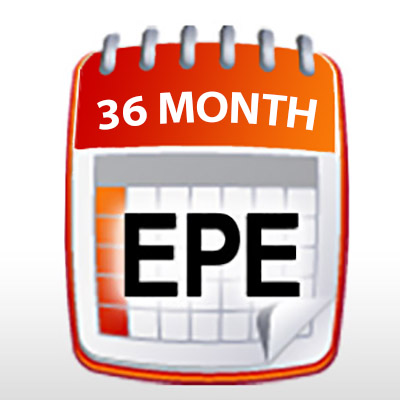Extended Period of Eligibility
 Earlier this year, we shared how one of Social Security's Work Incentives, the Trial Work Period (TWP), may help people who receive Social Security Disability Insurance (SSDI) as they return to work or start working for the first time.
Earlier this year, we shared how one of Social Security's Work Incentives, the Trial Work Period (TWP), may help people who receive Social Security Disability Insurance (SSDI) as they return to work or start working for the first time.
Have you completed your TWP? Congratulations! You are on the way to financial independence. This month, we are exploring what happens after your Trial Work Period ends and how Social Security's Work Incentives may continue to help you during the next stage toward reaching your financial goals.
Stage 2: Extended Period of Eligibility
Once you have completed your TWP, you get a 36-month safety net called the Extended Period of Eligibility (EPE). During the EPE, Social Security looks at what you earned in a month to decide if the work is "Substantial Gainful Activity" (SGA). Social Security can deduct the value of other Work Incentives, like subsidies or impairment-related work expenses, when deciding if your work is SGA.
Once Social Security subtracts the value of these Work Incentives, they compare the result to the SGA level that applies to the year that you did the work. For example, if you are not blind, and the work was in 2018, Social Security may decide your earnings are SGA if the income after those deductions is more than $1,180.00 in a month. If you are blind, the earnings level is higher. In 2018, a person who meets Social Security's rules for blindness is earning SGA if his or her countable earnings are above $1,970.00.
Remember: Report your wages
Whether you receive SSDI or SSI, it is very important to let Social Security know about work activity and wages earned.
A Ticket to Work service provider can explain Social Security's work and wage reporting requirements and assist with reporting earnings to Social Security.
You receive a grace period the first time Social Security decides your work is SGA after the TWP. If Social Security decides your work is SGA, you are still due payments during a 3-month grace period. After the grace period, Social Security will suspend your payments for months that you perform SGA. If your earnings fall below SGA during the 36-month safety net of the EPE, Social Security will start your cash benefits again once you report the change, and Social Security updates your work record.
Once your EPE ends, you will continue to be due your cash benefits if you are not working or your work is not SGA.
Talking with a Benefits Counselor can help you better understand the Work Incentives available to you and how they may affect your earnings and benefits.
About Ticket to Work
Social Security's Ticket program supports career development for people ages 18 through 64 who receive Social Security disability benefits (SSI or SSDI) and want to work. The Ticket program is free and voluntary. It helps people with disabilities move toward financial independence and connects them with the services and support they need to succeed in the workforce.
Learn More
You can call the Ticket to Work Help Line at 866-968-7842 or 866-833-2967 (TTY) Monday through Friday, 8 a.m. to 8 p.m. ET. Ask a representative to send you a list of service providers or find providers on your own with the Ticket program Find Help tool.